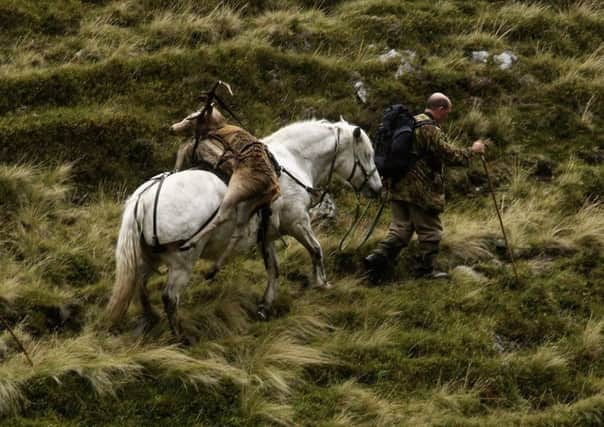How Scots can help nature hold back global warming


Nothing could be truer when it comes to the massive shifts in investment needed. The Finance for Nature Summit hosted by the Scottish Government in Edinburgh last week was a timely response to the declaration of emergency, recognising the critical role finance must play in driving the change and innovation needed to transition our economies to a post-fossil fuel future within a generation.
Roseanna Cunningham, the Climate Change Secretary, recently said that responding to this crisis means rewiring the nation’s psyche. And she’s right. Eliminating Scotland’s contribution to global warming by 2045, five years earlier than the rest of the UK, will be no easy feat. It will require big economic, social, political and financial shifts to rapidly and dramatically reduce the amount of greenhouse gases poured into the atmosphere. But, as the saying goes, nothing that’s worthwhile is ever easy. Scotland is showing the world what climate leadership looks like and many others need to follow +our lead.
Advertisement
Hide AdAdvertisement
Hide AdUnfortunately, though, we are at a point where emission reductions alone, however significant, will not be able to limit the rise of average global temperature to 1.5 to 2C above that of the pre-industrial age – the goal set by the Paris Agreement. We must also draw large amounts of carbon dioxide from the atmosphere. And to do this, we must invest in the power of nature.
The good news is that natural climate solutions are relatively cheap, effective and ready to deploy. On a dollar for dollar basis, for example, one of the most impactful things we can do to tackle climate change is halt deforestation. Not only is this one of leading causes of emissions, it is also chipping away at a resource that can naturally absorb CO2 and maintain biodiversity. Lose, lose.
On the other hand, if we are able to better manage the way we use land, halt deforestation, and restore natural landscapes where feasible, we have the potential to provide about a third of the carbon reductions needed by 2030, as well as reap the many other benefits that come from vibrant natural landscapes. In terms of an emergency response, win, win.
The problem is that natural climate solutions are receiving less than three per cent of global climate finance, which itself is deeply insufficient to properly address the climate emergency. At the moment, too much money is still flowing into the old way of doing things, and this is certainly true when it comes to the sectors that are causing widespread deforestation. Financiers need to be much more conscious about the impact of their investments and make the changes necessary to ensure their allocations of capital align with climate goals. This is why Scotland’s leadership in the area of ethical finance, witnessed at the Edinburgh summit this week, is so important.
But, in a state of emergency, it’s important to be blunt. Ultimately, it will be impossible to make serious progress until we are able to put a value on the climate and ecosystem services nature provides that competes with the value we put on the industries and activities that are using land for other purposes.
Scotland, for example, has greater potential for carbon sequestration through natural climate solutions. But much of this potential is unrealised because so much land is dedicated to sporting pursuits: for example, a recent report notes there are currently 1.8 million hectares of deerstalking land in Scotland. Rewilding this landscape with natural forests, and restoring and protecting peatlands, would not only have climate benefits, it could also create numerous economic benefits for both land owners and communities.
In my home country of Brazil, we similarly have a large amount of cleared land that is under-utilised. Our challenge is to find ways to provide incentives for farmers and agricultural companies to stop cutting down forests and converting natural habitats, and rather find more economically efficient uses for the land that has already been cleared but is under-utilised. In fact, Sustainable Investment Management has launched an innovative new initiative, called the Responsible Commodities Facility, to help achieve this. This is a fund capitalised through green bonds that will provide low interest lines of credit to farmers who commit to conversion and deforestation-free production of soy in the Cerrado grasslands of Brazil. It’s a smart choice for the farmers as this new class of commodities is increasingly demanded by environmentally- conscious consumers.
This is just one example of how we can mobilise private sector investment to make better use of land and help achieve our climate goals. The common thread is that until we find a way to create the financial incentives to better manage land use and protect and restore forests, we will be stuck in a situation where forests, peatlands and other natural landscapes continue to disappear before our eyes, robbing us and our children of one of the best chances we have to tackle this climate emergency.
Advertisement
Hide AdAdvertisement
Hide AdThe scale of the challenge requires everyone to make changes – individually and in partnership – among governments, international organizations, civil society, companies and investors. All need to step up and start aiming for the same target: nature providing 30 per cent of the needed global emission reductions by 2030. Once we’re all pointed in the same direction, each group can make its contribution.
For the finance community, this will require investors to take greater steps to divest from companies involved in deforestation and create new vehicles to finance natural climate solutions.
We look to the Scottish Government to continue to demonstrate strong leadership through the challenges ahead. Declaring a climate emergency is no small thing. But it’s just the first step. Ultimately, the true test will be how we respond. Are we able to grasp the solutions that are before our eyes?
l Pedro Moura Costa is chief executive of Sustainable Investment Management